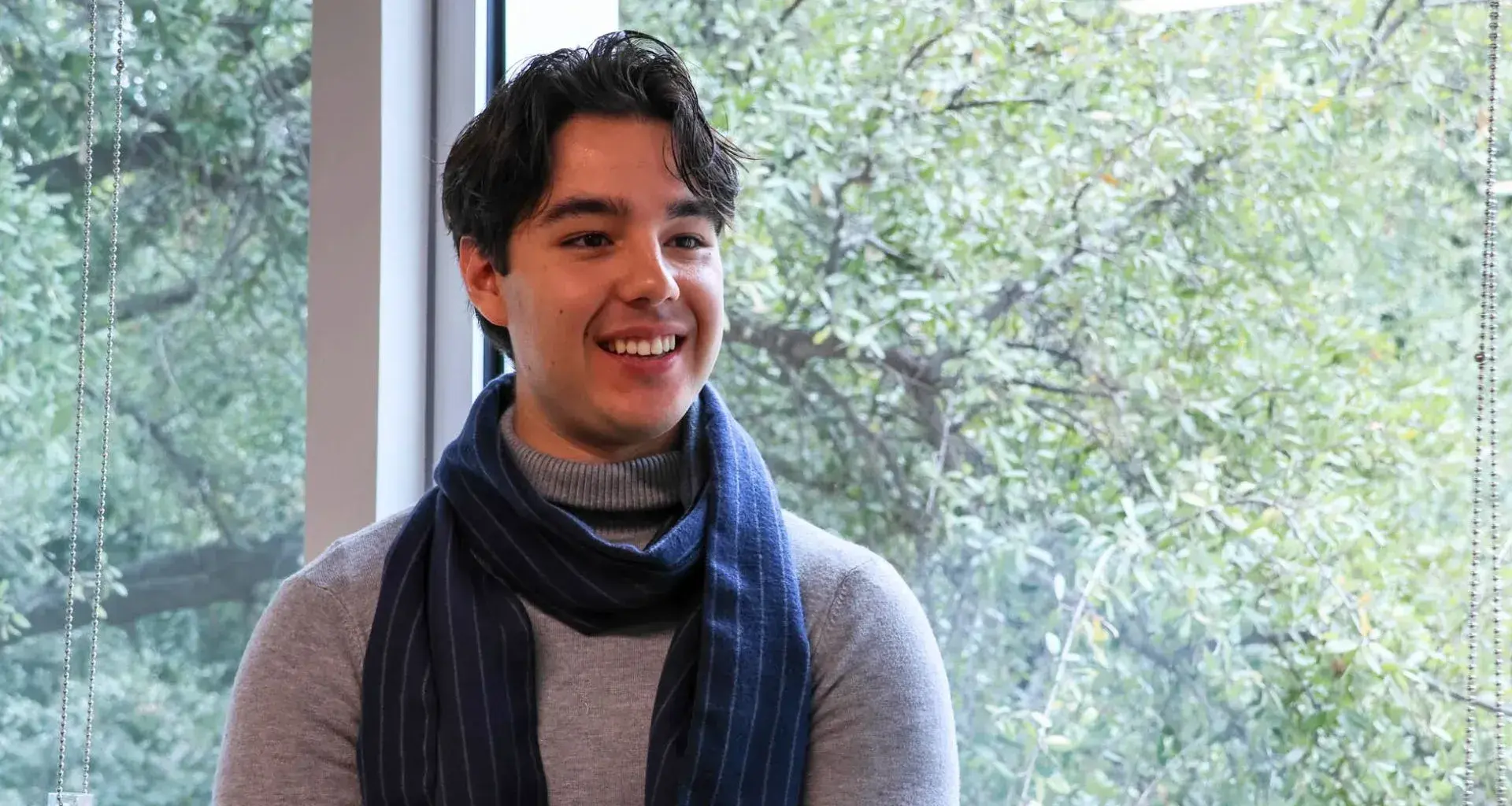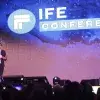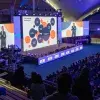He’s 24 years old, hasn’t yet finished his degree, and has already led his own research project at Tec de Monterrey.
Javier Romo is in his final semester of the Educational Innovation degree at the Tec’s Monterrey campus and is collaborating with the institution’s Institute for the Future of Education (IFE).
There, he led a research team on the use of virtual reality tools to generate greater engagement among online education students from diverse countries and backgrounds.
Javier had previously worked on neuroscience and healthcare research projects, and his long-held ambition is to use his vocation and knowledge to achieve something that generates social impact.
“I came up with the idea of using virtual reality infrastructure and preexisting escape rooms for generating a sense of trust between students. (...) We analyzed conversational patterns with machine learning”.
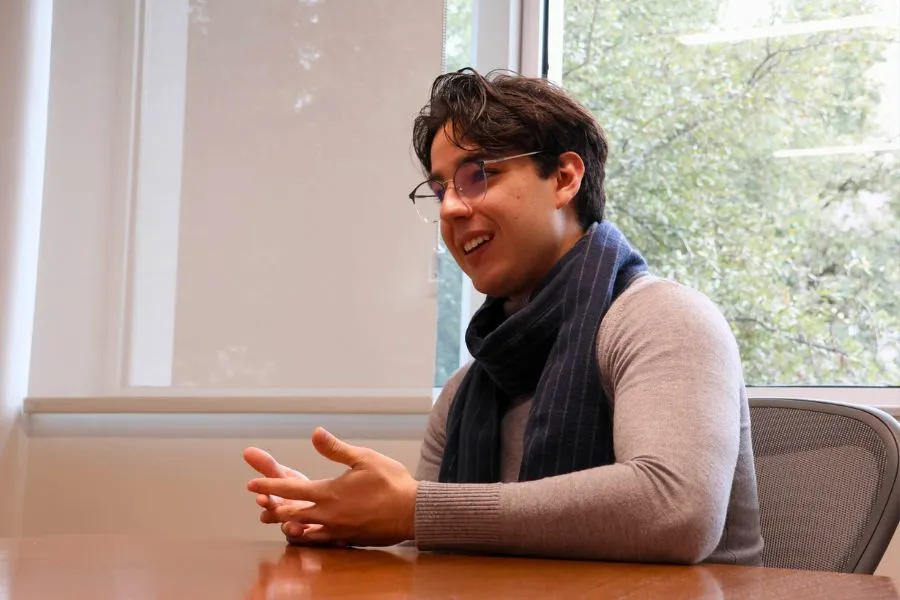
The value of practical learning
Javier was impressed by the learning method of his Educational Innovation program from the start because it allowed him to engage with aspects that were not only theoretical but also entirely practical and drawn from real life.
“It wasn’t just theory, but practical application. From the beginning, we worked on specific problems, with companies and organizations, not just with classroom exercises,” he says in an interview with CONECTA.
He emphasized that, from the very first block of his degree, he and his classmates were already carrying out projects comparable to those of a real consulting firm with real clients or training partners.
“We worked side by side with them (the teachers), as colleagues, and their classes became spaces for collaboration.”
“We worked with the Treviño Elizondo organization on a plan for training middle school teachers. I remember a teacher telling the executives: ‘Whatever these kids do is going to be first-class; I trust them, I trust their potential,’” he adds.
The confidence he gained from working alongside his teachers, even as they guided him through the process, motivated Javier.
He also liked the system’s emphasis on developing soft skills, which he now considers essential and very useful.
“Soft skills were key. It wasn’t just about knowing but about communicating what you knew, connecting with others, and understanding the impact of what we were doing.
“We worked side by side with them (the teachers), as colleagues."
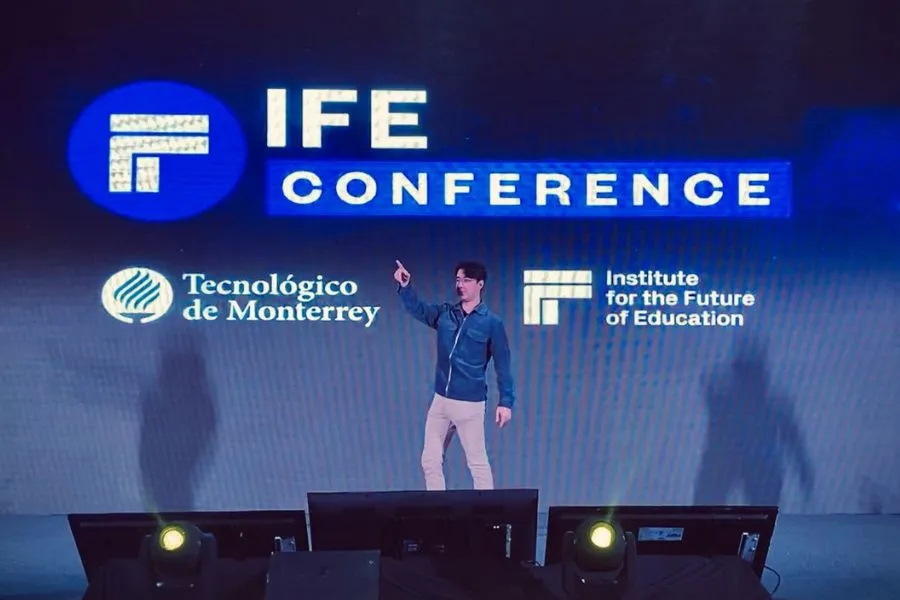
Getting started in research
Before starting Educational Innovation, Javier had completed two years of Electronic Engineering, also at Tec de Monterrey.
After changing major, however, and also coming from a family of engineers, Javier was interested in leveraging what he knew and learning about technology to apply it to research on learning environments.
One of the projects that impacted his development was in the area of neuroscience at TecSalud’s Zambrano Hellion Hospital, where he worked on an experiment involving transcranial magnetic stimulation in patients with severe depression.
“The aim was to investigate whether results similar to those obtained with pharmacology could be obtained using only magnetic stimulation. For me, it was an extremely important experience to see how the researchers handled themselves,” he explains.
“It also really helped my confidence because they took you seriously, gave you a white coat, and introduced you to the patients. But what I enjoyed most was seeing that the project had a direct impact. I always wanted to see the people,” Javier says, smiling.
To gain further experience as a researcher and create impact in the community, Javier also worked as a research assistant on projects for the BRAIN Center, a neurotechnology innovation initiative.
He also later joined the Institute for the Future of Education at the Tec. During these experiences, Romo learned and dedicated himself to collecting and analyzing data linked to brain signals, as well as biometric data.
Leading an investigation
As a result of his proactive attitude and hard work, Javier was offered the opportunity to lead a research project onnew technologies in education.
“In initiatives I had experienced as a student, such as Global Classroom, where you interact with international students and teachers, I realized that activities such as icebreakers weren’t really achieving their objectives,” he says.
“I came up with the idea of using virtual reality infrastructure and preexisting escape rooms for generating a sense of trust between students.
“We collected their physiological data and also analyzed conversational patterns with a machine learning model,” he adds.
“The goal was to see what the differences were in the indicators between the virtual and immersive parts to see if there was indeed a difference.”
Romo says that the IFE aims to produce two scientific articles based on the research conducted, which will be published in educational research journals.
“They’re probably going to do two papers: one that focuses on conditional patterns versus people’s self-perception, and the other on the physiological aspect.”
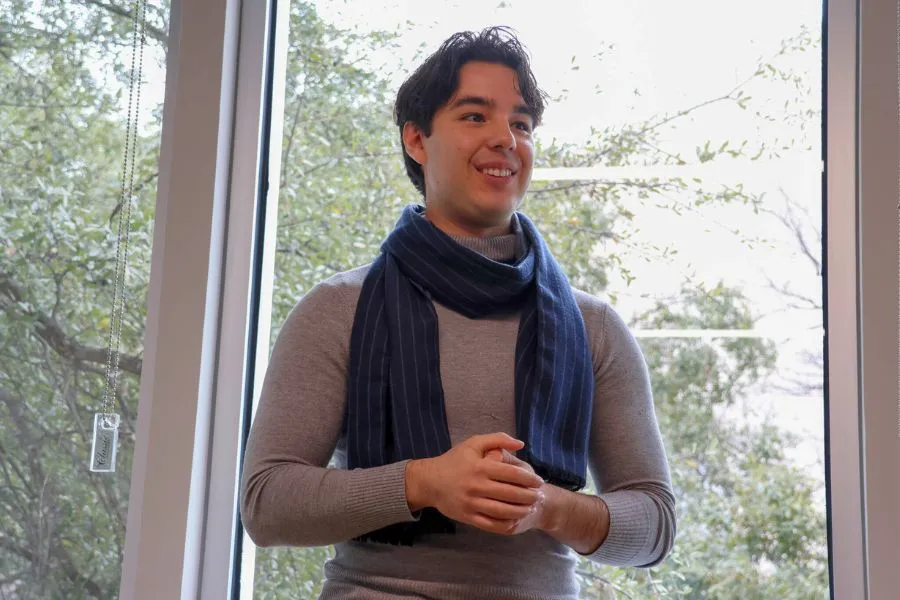
Making use of university resources
From getting support when changing majors to getting involved in research projects and receiving advice on his career path, Javier says that reaching out to university directors and mentors has been very beneficial for him.
“I’ve been able to approach people like Michael Fung, the IFE director, even Juan Pablo Murra when he wasRector for Higher Education (...) what surprised me most is that no matter how busy they were, they took the time to talk to me,” he recalls.
“Many of the teachers I had were instrumental. They didn’t just teach me in class but also presented me with opportunities and opened doors for me. They connected me with other professors and researchers...” he adds.
Finally, he recommends that students just starting out take advantage of every opportunity and be proactive.
“(The learning model) gives you the flexibility to try many things. It teaches you not to sit still because if you don’t work from the very beginning, time passes quickly, but that’s life,” he stresses.
“Now, when I talk to first-semester students, I strongly advise them to try out different activities and subjects, as this will help them discover their true passions and abilities and not limit themselves to just one option from the start.
“When I talk to new students, I tell them how important it is to take the initiative to approach people and ask for help. This can open doors (...) teachers want to help you, you just have to ask,” he added.
ALSO READ:

